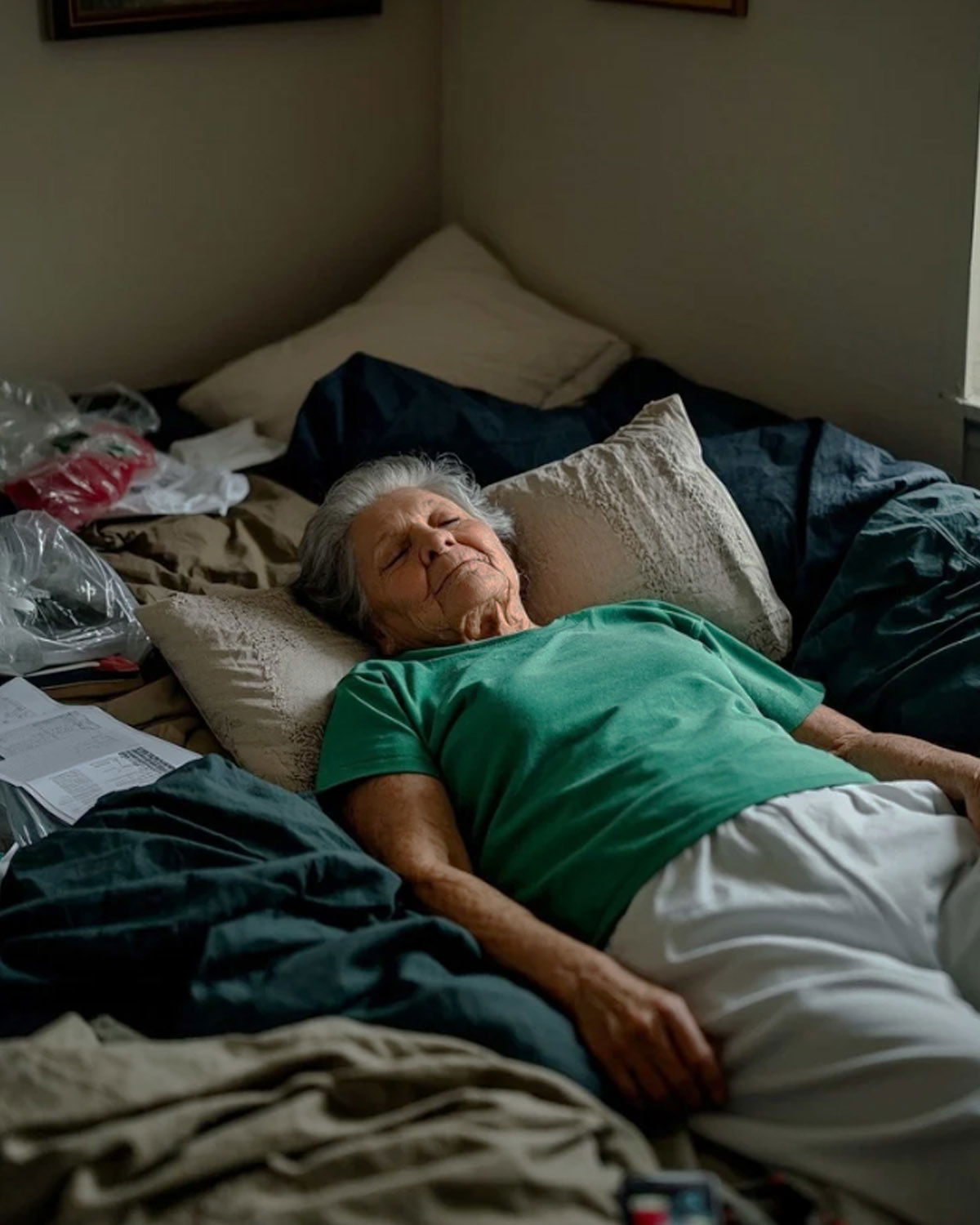When my 16-year-old son offered to stay with my mom over the summer and help her out, I thought he was finally turning a corner. But when I got that call—“Please, save me from him!”—I realized how wrong I’d been.
Her voice was low, full of fear, like she was hiding from someone. I barely had time to process it before the call cut off.
I stared at the screen, panic building in my chest. My mother, the strongest woman I know, sounded terrified. And I knew exactly who she meant by “him.”
My son had always been difficult. He wasn’t violent or anything, but lately, his attitude had gotten worse. He was pushing every limit, ignoring rules, acting like he knew everything. But I never imagined he’d go this far.
I remembered our conversation when he first suggested the visit.
“I was thinking… maybe I could stay with Grandma this summer,” he’d said, tossing his backpack onto the couch.
That alone shocked me. He usually groaned at the idea of even a weekend visit.
“You want to help her?” I’d asked.
“Yeah,” he shrugged. “You always say she’s lonely. Plus, you could save money on the caregiver. I’m old enough to help.”
At the time, I felt proud—hopeful even. Maybe this was the beginning of maturity.
But now, flying down the highway with white knuckles on the wheel, I replayed every part of that conversation. It didn’t sound genuine anymore. It sounded like a setup.
When I got to my mom’s street, I knew something was very wrong. I could hear music blaring before I even turned into the driveway. The porch was a mess—trash everywhere, empty bottles, cigarette butts. The neat little home my mother took pride in was trashed.

I slammed the car door and raced to the front. The inside was worse.
There were strangers everywhere—kids drinking, shouting over pounding music. Some looked like they were still in high school, others way older.
I pushed through the crowd, my voice sharp. “Where’s my mother?!”
No one answered. Just blank stares and awkward shrugs.
A girl on the couch slurred, “Chill, lady. It’s just a party.”
“Where. Is. My. Mother?” I snapped.
She rolled her eyes. “Haven’t seen her. Maybe she’s asleep or something.”
Heart pounding, I shoved past the chaos, calling out. “Mom! It’s me! Are you here?”
I reached her bedroom. The door was shut tight, the handle scratched.
I banged on it. “Mom? It’s me! Please open up!”
Her voice came through, barely audible:
“I’m here. Please—just get me out.”
I fumbled with the knob and finally got the door open.
She was there, sitting on the edge of the bed. Her eyes were hollow, her hands trembling.
“He started with just a few friends,” she said in a shaking voice. “Then more came. I told him to stop. He got angry… locked me in here. Said I was ruining his fun.”
I felt sick. I dropped to my knees and wrapped my arms around her. “I’m so sorry. I had no idea. I swear, I’ll fix this.”
Her voice was faint, but firm. “You have to.”
I stood up, rage bubbling under my skin.
I walked back into the living room. The music still roared, people still danced, completely oblivious.
And then I saw him.
My son.
Leaning against the wall, laughing like nothing was wrong.
He caught my eye, and his face fell.
“Mom? What… what are you doing here?”
“What am I doing here?” I repeated slowly. “The question is, what are you doing here? Look at this house! Look at what you’ve done!”
He tried to shrug it off. “It’s just a party. No big deal.”
I raised my voice. “Everyone out. Now. If this house isn’t empty in two minutes, I’m calling the cops.”
The room went silent. People grabbed their stuff and started filing out quickly, mumbling apologies.
When they were gone, I turned back to my son.
“I trusted you. She trusted you. And this is how you show respect?”
He looked away, jaw tight. “You’re always on my back. I just wanted some space!”
“Space?” I said. “You abused the only person who never gave up on you. You’re not staying here another day.”
He scoffed, “What are you gonna do? Ground me?”
“No,” I said calmly. “You’re going to a camp that teaches discipline. Real rules. Real consequences. And I’m selling your stuff to pay for the damage.”
His face fell. “You can’t be serious.”
“I’ve never been more serious,” I replied. “If you don’t shape up, you’re out when you turn 18. I’m done cleaning up your messes.”
The next day, I packed his bags and sent him off. He didn’t fight me—not like I expected. Maybe some part of him knew I was serious this time.
That summer, while I helped my mom fix her house, I hoped that something would click for him. That he’d finally understand what he’d done.
Months later, he came back different. Quiet. More thoughtful. He started pitching in at home, taking school seriously, and even apologized to his grandma.
Two years went by. On the day he brought her flowers and said,
“I’m sorry, Grandma,”
I knew that somewhere along the way, he’d finally grown up.
